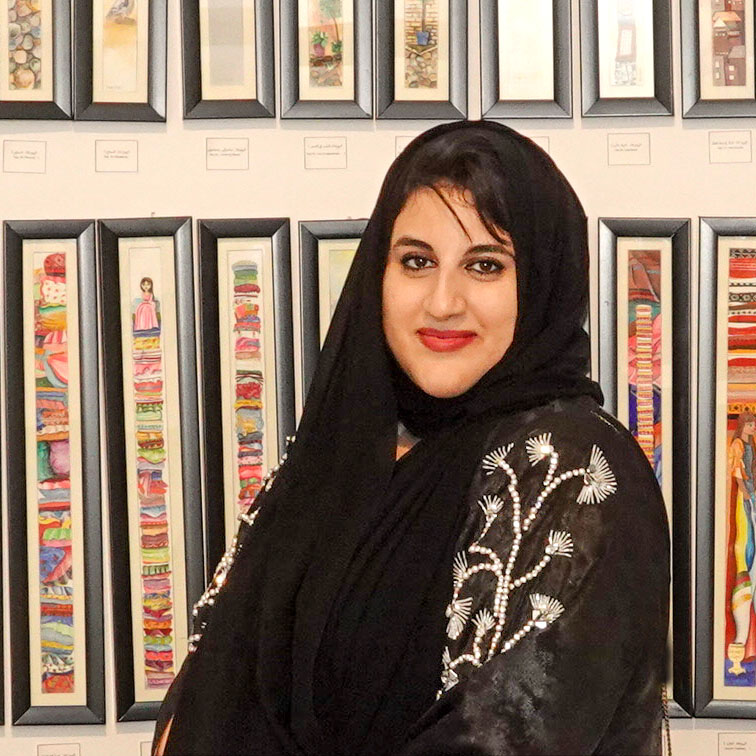JEDDAH: The Saudi Art Council brought together a wide range of local artists after the months-long lockdown for the 6th Shara Art Fair, which was recently launched in Jeddah at the council’s headquarters.
With the global pandemic closing art galleries and canceling live events, artists took a hit like many other workers. The Shara Art Fair, however, allowed artists from all across the country to exhibit their talents in seven art galleries.
The participating galleries included Athr Gallery, Hafez Gallery, 6th Sense Art, Noor Gallery, Tasami Creative Lab, BHAC, and Visual Stations.
Heba Abed, a visual artist and painter, said that her life during the pandemic was a combination of “watching TV, eating, and painting.”
Inspired by her surroundings, Abed’s artwork was a collection of one hundred paintings that exhibit the emotions she felt during the hundred days of quarantine.
“Some of the paintings express the feelings I had while in quarantine, while others are inspired by fairy tales because there was a lot of time for our minds to wander while we were stuck at home,” she told Arab News.

Heba Abed
She added: “I would sometimes paint more than one painting a day during the lockdown. While we were all bored, I decided to practice the thing I loved most. I found inspiration in my life, in society and in everything that happened around me.”
Artist Elham Dawsari, on the other hand, used the 1990s as inspiration for her artwork, “Nefa,” which means a spacious place with few to no walls. The installation, featuring clay women set over acrylic boxes with mirrors inside, is meant to symbolize the women’s untold stories.
“The idea behind the piece was to represent the lives of the women in the 90s,” she said.
Cutouts hang from the ceiling of the gallery around the art, which according to Dawsari, symbolize the urban landscaping at the time and the style of the houses.
HIGHLIGHTS
• The Shara Art Fair allowed artists from all across the country to exhibit their talents in seven art galleries.
• The participating galleries included Athr Gallery, Hafez Gallery, 6th Sense Art, Noor Gallery, Tasami Creative Lab, BHAC, and Visual Stations.
“They also show how those designs imposed themselves on our lives,” she said. “They show certain aspects of society and how we behaved and how our bodies looked because of the limited space we had to walk around in; they were fuller but also more muscular because of all the hard work the women used to do.”
The clay figures of the women are based on Dawsari’s memory and the collective memory of her family.
Another piece featured large wooden dolls perched on a table. As time passed, the artist painted more dolls. The founder of Dar Malak, Malak Masallati, was the designer and director of the project and expressed the hope that her wooden dolls would become the next “Saudi Wooden Dolls.”
“I wanted to create wooden dolls that represent our country and its culture and that could become an icon. I called the project ‘Nasana’,” she told Arab News.
Dar Malak worked with designers and artisans to translate the idea of Masallati into actual objects.
Masallati worked with a wood factory that handled the woodturning and scaling for her.
“I did my research on the proportions of the human body, using examples of different bodies to create the variety you see here,” she added.




























